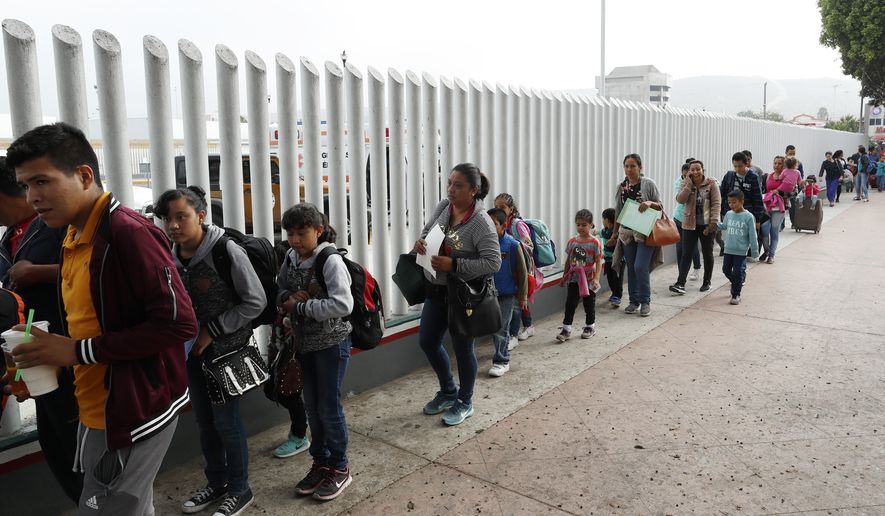The number of young children being snuck across the border is rising, top Homeland Security officials said Monday, blaming a recent order by a federal judge for spurring some of the new wave.
Known in government-speak at Unaccompanied Alien Children or UACs, the children show up without parents, which under the law earns them more lenient treatment.
“The number of UACs arriving at the U.S.-Mexico border have nearly doubled in the past few weeks, reaching a daily average of more than 150,” said Mark Morgan, acting commissioner of CBP.
By contrast, in all of April just 712 UACs were encountered, he said.
Mr. Morgan said the children — and the smugglers who facilitate their journey — are responding to a decision by Judge Emmet G. Sullivan in Washington requiring UACs to be quickly processed and released amid the coronavirus pandemic.
By contrast, most other illegal immigrants arriving at the border right now are being quickly expelled under a Centers for Disease Control and Prevention pandemic order.
More worrying, Mr. Morgan said, is the level of coronavirus infections among the group.
He said more than 11% of the children test positive when they reach custody of the federal Health and Human Services Department, which is the agency that houses the children under Judge Sullivan’s order.
Mr. Morgan said those children represent a serious danger of virus spread as they’re being sent from border facilities to the HHS shelters across the country.
He also said the children are increasingly likely to try to evade detection by agents because they’ve learned it’s easier.
Across all demographics, illegal migration appears to have remained steady from October to November, based on encounters at the border. But the numbers are still substantially higher than they were a year ago at this time.
Mr. Morgan said he expects a massive new surge in coming months as migrants seek to exploit policies the incoming Biden administration has said it would pursue.
“The unfortunate groundwork for a new border crisis has already begun,” Mr. Morgan said.
• Stephen Dinan can be reached at sdinan@washingtontimes.com.




Please read our comment policy before commenting.